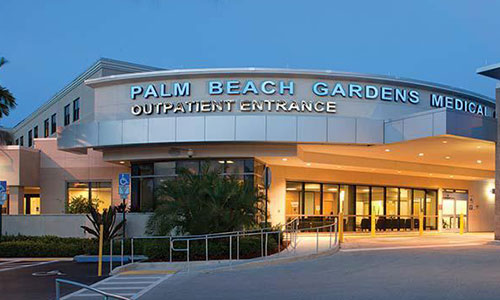Coronavirus Florida: Hospitals emphasizing safety as elective medical procedures return
May 18, 2020 Coronavirus updates: At Tenet Healthcare’s
five Palm Beach County hospitals, safety protocols for elective procedures include pre-admission screening, COVID-19 screening, masks and sanitizers.
Coronavirus updates: At Tenet Healthcare’s
five Palm Beach County hospitals, safety protocols for elective procedures include pre-admission screening, COVID-19 screening, masks and sanitizers.
TO OUR READERS: This content is being provided for free as a public service to our readers during the coronavirus outbreak. Please support local journalism by subscribing to The Palm Beach Post. If you want breaking coronavirus news directly in your inbox, sign up for our Coronavirus Newsletter.
Elective medical procedures are back at Florida’s hospitals and outpatient centers after a nearly two-month pause amid the novel coronavirus pandemic, and area doctors are lauding the decision to restart them.
As of May 4, a variety of procedures including knee replacement surgeries, hernia repairs and cardiac catheterization are being performed at Palm Beach County medical facilities.
Delray Medical Center, Palm Beach Gardens Medical Center, Good Samaritan Medical Center, St. Mary’s Medical Center and West Boca Medical Center, all operated by Tenet Healthcare, welcomed patients who had been forced to postpone their procedures as the coronavirus crisis deepened.
EXCLUSIVE: Patients in Florida had symptoms as early as January
“We feel that people were staying home when they actually needed care,” said Maggie Gill, CEO of Tenet Palm Beach Health Network. “We’re back up, and the restrictions that were put in place were lifted. We’re ready.”
Delaying these procedures for some patients has had a devastating effect on their health, said Dr. Eric Lieberman, the medical director of cardiac services for Tenet Palm Beach Health Network.
“COVID is a horrible virus, but there are other medical issues like coronary artery disease that are equally lethal and really affect a larger group of the population,” he said. “It causes more overall mortality. It is a life-threatening disease.”
Now that the ban on elective medical procedures has been lifted, some patients are returning to the hospital for treatment.
“We’re seeing an increase overall in surgery,” Gill said. “A lot of orthopedic surgery was deferred, and general surgery. There was a significant backlog of that.”
>>‘Heal the World’: Gardens girl shows support for first responders with YouTube video
Hospitals also are seeing patients who require cardiac procedures, cardiopulmonary rehab, cardiac rehab and physical therapy, Gill said.
“When you take a break from it for a period of weeks and months, there is a definite need to get people back into their recovery process,” she said.
Not all patients are eager to return, however.
The number of elective procedures performed at area hospitals over the past week remain lower than they were prior to the coronavirus pandemic, Gill said, because many patients continue to worry about being exposed to the virus.
Tenet hospitals have instituted numerous safety protocols to keep patients and health care professionals safe, said Dr. Mimi Metcalf, an internist and physician adviser at Good Samaritan Medical Center.
Those protocols include a pre-admission screening over the phone for all patients, pre-admission testing that includes a COVID-19 screening, masks and hand sanitizers upon arrival, and segregating COVID-19 patients from non-COVID patients.
Who will survive the restaurant shutdown? The creative and adaptable, experts say
“We have a separate dedicated (operating room) for any COVID patients,” Metcalf said. “That would not include any of these elective procedures. We also have dedicated, separated wings for COVID patients. All of those wings and the OR are negative pressurized and undergo a thorough disinfection and cleaning regularly, and that includes all ORs.”
“I’ve told people that until we have a treatment or vaccine that prevents it, COVID is part of our lives as citizens,” she said. “So what we have to do is understand that we have to go on with our lives with COVID in it. We have made sure that we have different avenues of care for COVID and non-COVID. Non-COVID is the majority of patients.”

